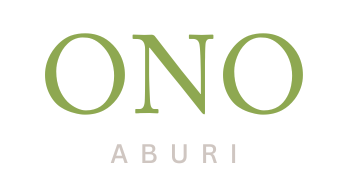Are you thinking about buying land in Ghana? Well, that’s a big step. Knowing how land ownership works here can save you from a lot of stress.
In Ghana, land isn’t just owned by people or the government. It’s often tied to chiefs, families, or state authorities. So, before you make any payment, it’s good to understand the basics.
The 3 Main Types of Land in Ghana
Most land in Ghana falls into one of these three groups:
- Stool (or Skin) lands,
- Family lands, and
- State lands.
There’s also something called Vested Lands, which is a mix of traditional and state ownership. We’ll touch on that at the bottom of this article.
Let’s look at each one.
1. Stool (or Skin) Lands
The most common, these are lands held by chiefs, clans, or traditional councils. The land isn’t personally owned by the chief—he or she manages the land on behalf of his subject or community.
About 80% of the land in Ghana is stool land.
If you want to buy stool land, you’ll need to deal with the chief’s office or the traditional council. After paying the right fees, you’ll usually get a document called an allocation note or indenture.
Tips for buyers:
- Ensure the chief has the right to lease the land.
- Check that the land isn’t in dispute.
- Verify everything at the Lands Commission.
Quick facts:
- Who owns stool lands? Traditional authorities.
- How is the stool used? Usually leased, 99 years for Ghanaians and 50 years for non-Ghanaians.
- Where do you find such land? They abound in all regions, especially in areas like Kumasi, the Eastern Region, Osu, and La in Accra.
Quick-read: Aburi is a serene environment away from the chaos of big cities like Accra. Properties like ONO Aburi: The One and Only Haven of Serenity by Nouveau Realty Ltd affirm why it’s a real estate favourite in Ghana.
2. Family Lands – Passed unto Generations
These lands belong to families or clans. They’re passed from one generation to the next.
The family head and elders must all agree before the land is sold or leased. That’s where things can get tricky; sometimes, there are arguments about who can sell.
Tips for buyers:
- Ask for proof that the family owns the land
- Get a written agreement from all the main elders
- Verify documents at the Lands Commission
Honestly, family land disputes are very common. So, always get a lawyer and do your checks before paying.
Quick facts:
- Who owns it? Families or clans.
- How is it used? Either sold, leased, or gifted—if everyone agrees, of course!
- Where you’ll find it: Nsawam, Dodowa, parts of the Volta Region
3. State Lands – Owned by the Government
These lands are taken by the government for public use, for building infrastructure like roads, schools, hospitals, and airports.
Ghana’s 1992 constitution (Article 257[1]) notes that all public lands in the country are vested in the President on behalf of, and in trust for, the people.
The government gets these lands through compulsory acquisition, usually under the Constitution and the Lands Act.
State lands make up about 20% of all land in Ghana, as Lands Commission data show.
You don’t ‘buy’ state or public land like other types. Instead, you apply for a lease through the Lands Commission, which manages these lands through the Land Administration Division and the Public and Vested Lands Management Division (PVLMD).
A lease usually lasts 99 years for Ghanaians and 50 years for foreigners.
Tip for Buyers:
- State land is usually well-documented, but the process of acquiring it can be slow and full of paperwork.
Quick facts:
- Who owns it? The Government of Ghana
- How is it used? For public projects or leased to individuals
- Where can you find such land? Some areas include the Airport Residential Area, Cantonments, and Ministries in Accra.
4. Vested Lands
This type of land ownership is a bit of both; they are owned by traditional authorities but managed by the state. So, both the government and the chiefs are involved.
Yeah, they can be complicated to deal with. That’s why, if you’re considering vested land, make sure to get expert help.
Must Read: Ghana Real Estate Investment: Top Tips for Diasporans Buying Property
Stool Land vs. State Land: What You Need to Know
What’s the difference between the types of land? Let me simplify:
| Feature | Stool Land | State Land |
| Owner | Traditional authority (chief, clan) | Government of Ghana |
| Use | Leased to individuals | Public use or leased |
| Lease term | 99 years (Ghanaians), 50 (foreigners) | Same |
| Oversight | Traditional council + Lands Commission | Lands Commission only |
| Risk | Medium if not verified | Low, but slower process |
How to Safely Buy Land in Ghana
No matter the type of land, follow these steps to protect yourself:
- Search the land at the Lands Commission.
- Get a site plan with the right coordinates.
- Ask around about any disputes or court cases.
- Hire a lawyer to review documents.
- Register the land in your name after buying it.
After getting the land, the next big step is registration. Here is where you may be tempted to give up. But wait! Help is here.
In this guide, Understanding Land Title Registration in Ghana, we look at the step-by-step, hassle-free process to register your land.
We also dive into the various titles there are—freehold, allodial, and leasehold. Be sure to check it out.
Conclusion
Buying land in Ghana isn’t just about finding a nice plot. It’s about knowing who owns it and making sure everything checks out.
Want great advice? Take your time. Talk to the right people. Verify every document. It might take longer, but it’ll save you stress and money later.
